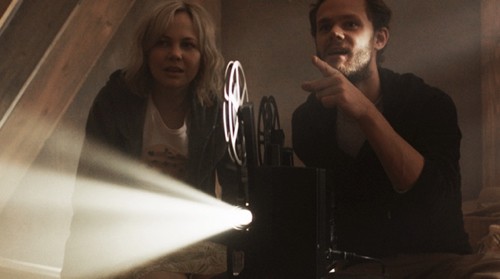
The Automatic Hate (2015) / Drama
MPAA Rated: Not rated, but would definitely be R for strong sexuality and language
Running Time: 97 min.Cast: Joseph Cross, Adelaide Clemens, Deborah Ann Woll, Richard Schiff, Ricky Jay, Yvonne Zima, Vanessa Zima
Director: Justin Lerner
Screenplay: Justin Lerner, Katharine O'Brien
Review published March 18, 2016
 I don't hate The Automatic Hate,
but I'm not especially fond of it either. It's not easy to pin down
the reason why I don't cotton to it using the usual standards by which films are
critically measured. The
actors are fine, as is the direction, cinematography, and editing.
The story elements are bold and intriguing throughout. And yet, it
doesn't work for me.
I don't hate The Automatic Hate,
but I'm not especially fond of it either. It's not easy to pin down
the reason why I don't cotton to it using the usual standards by which films are
critically measured. The
actors are fine, as is the direction, cinematography, and editing.
The story elements are bold and intriguing throughout. And yet, it
doesn't work for me.